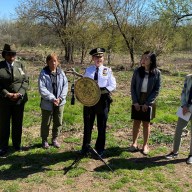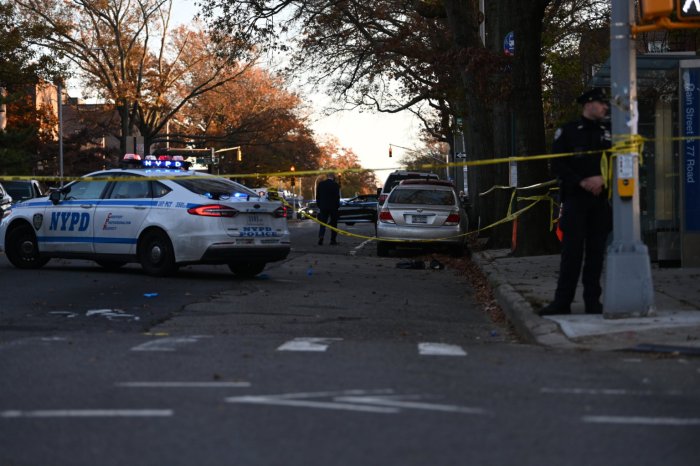By James DeWeese
Thousands of miles from her native Dominican Republic, Elena Abreu recalled the hard work of a people who years ago transformed the dusty, arid land of her tiny seaside village into a thriving town with its own synagogue, sanitation system, schools and dairy production facilities.
They were musicians, thinkers and celebrities, Abreu said in Spanish Monday before a Jackson Heights auditorium filled to capacity with Jewish community leaders, World War II veterans and more than half a dozen Queens politicians. “But they knew how to work the land and harvest its bounty,” she said.
As part of a special Holocaust Remembrance Day event, Abreu, now in her 60s, shared her feelings on growing up with the sons and daughters of 645 Jewish refugees, who between 1938 and 1941 escaped the tyranny of the expanding Nazi regime by fleeing to the unlikely Caribbean haven of Sosua.
“In the arid land, even the trees whisper their thanks to the Jewish (refugees),” Abreu said during the event organized by the Jackson Heights-Elmhurst Kehillah to pay tribute to the Dominican Republic for opening its doors to the refugees while other, more powerful nations, including the United States, turned their backs.
At the same time, organizers remembered 6 million others who perished in Nazi concentration camps, as they called audience members up to light a memorial candelabra.
The predominantly German and Austrian refugees fled to the Dominican Republic, the only country in the Western Hemisphere that agreed during the 1938 Evian-Les-Baines, France, Jewish resettlement conference to accept a significant number of Jewish transplants from the Old World.
Borough President Helen Marshall attended the event organized by the coalition of 23 Queens Jewish community groups and synagogues.
During the 32-nation 1938 conference, organized by U.S. President Franklin Delano Roosevelt, Dominican strongman Rafael Trujillo agreed to accept as many as 100,000 refugees. Germany was still allowing Jews to emigrate so long as they transferred their assets to the German government.
At the time, said current Dominican Consul General Jose Pimentel Moreno, the Caribbean island nation’s residents numbered only about 2 million; other nations promised to admit no more Jewish refugees than existing immigration laws would permit, said Hannah Deutch, herself a Holocaust survivor who found refuge in Great Britain.
In 1940, Trujillo signed a formal contract with Nazi Germany and moved to issue 5,000 visas almost immediately.
“This is the one thing that might get (Trujillo) into the gates of heaven,” Marshall said of the former dictator.
But in the fall of 1941, Adolf Hitler slammed the door on Jewish emigration. Only 645 refugees made it to the Dominican Republic’s shores, settling in the northern town of Sosua.
“It doesn’t matter whether it was 650 or 200 or even one,” said City Councilwoman Helen Sears (D-Jackson Heights). “What is important is that a hand was extended (and) as long as a hand is extended to one, then it is extended to all humanity.”
“They came as refugees,” said Pimentel Moreno before receiving a number of proclamations from state and city legislators. “For us they became teachers, but more especially they became for us brothers.”
Though the number of original immigrants has dwindled to five or six after dying or moving away, Abreu said, the Jewish refugees left their mark on the town — today a thriving tourist center — and the country.
Today, Sosua still has a working synagogue, many of the immigrants’ children have married Dominicans and many of the refugees’ students have gone on to occupy pre-eminent positions in Dominican society, Abreu said.
Irma Linares, a friend of Abreu’s, also from the Sosua area located about 120 miles north of Santo Domingo, pointed to the accomplishments of master chef Mike Mercedes, a student of one of the Jewish refugees.
“The bond of friendship formed in 1938 between the Jewish people and Dominican Republic is forever,” said Kehillah President Ken Moskowitz.
Reach reporter James DeWeese by e-mail at news@timesledger.com or call 229-0300, Ext. 157.





























